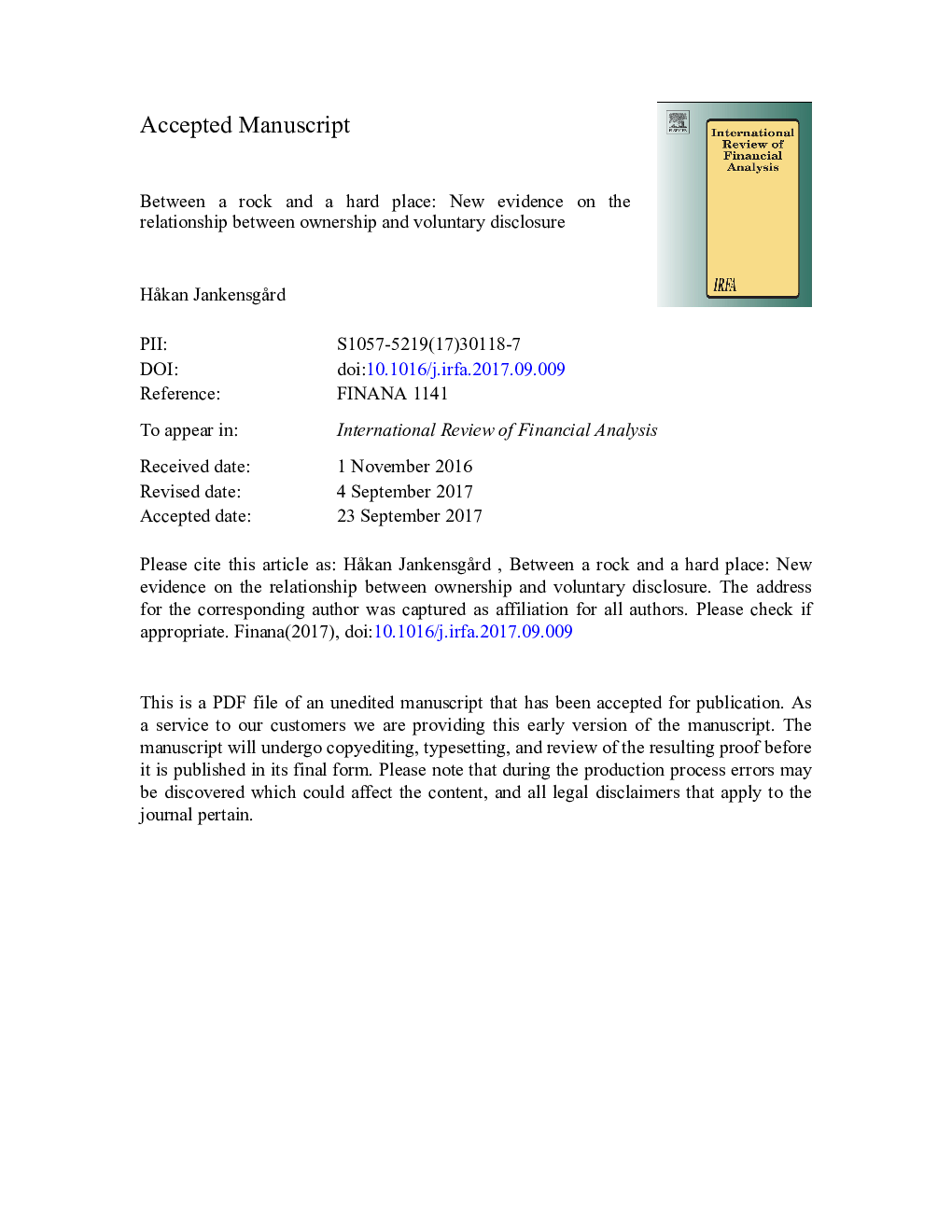| Article ID | Journal | Published Year | Pages | File Type |
|---|---|---|---|---|
| 7355777 | International Review of Financial Analysis | 2018 | 41 Pages |
Abstract
Combining two Swedish databases with unique strengths I show that stray firms, i.e. those lacking a controlling owner, have lower voluntary disclosure in financial reports (that is, information provided beyond what is formally required). This suggests managers prefer to withhold information to maximize their discretion over corporate policies. I also show that disclosure initially increases with block ownership, reflecting increased incentives to monitor and stronger governance. However, when block ownership exceeds a certain threshold level (>Â 50%), disclosure starts to decrease, reflecting another conflict of interest, namely between minority and controlling owners. Evidence of this non-linear relationship is novel in the literature and may account for the mixed evidence in previous research. Moreover, I report findings on the impact of institutional, foreign, under-diversified, and controlling minority-owners, concluding that ownership structure has major implications for voluntary disclosure.
Related Topics
Social Sciences and Humanities
Economics, Econometrics and Finance
Economics and Econometrics
Authors
Håkan Jankensgård,
